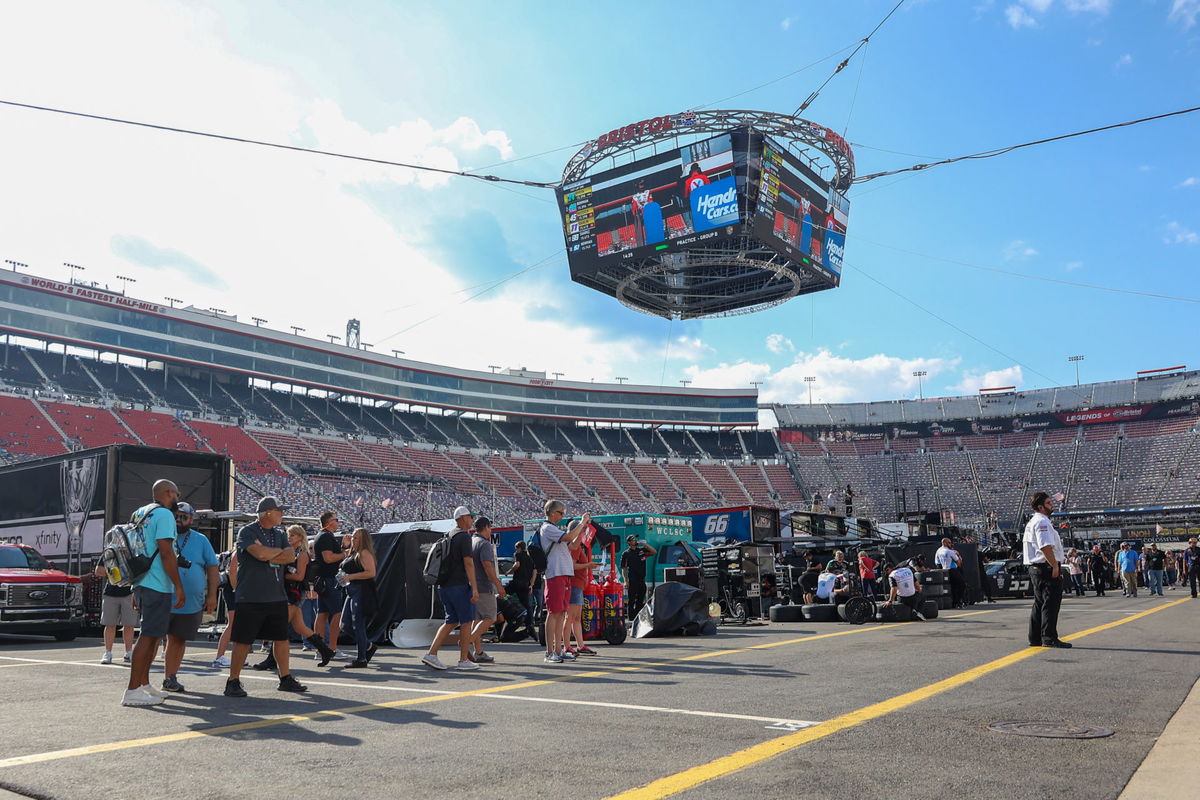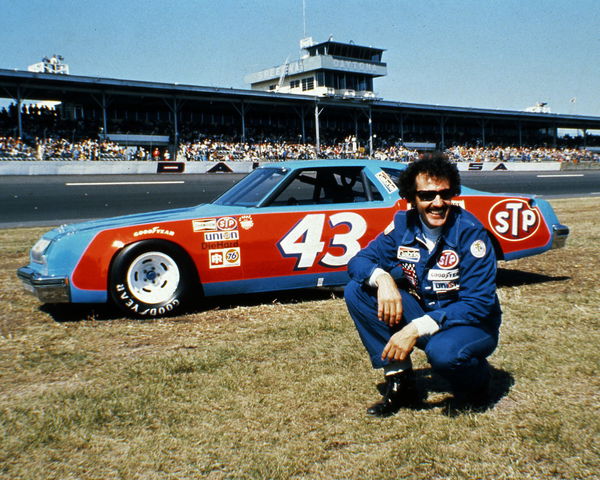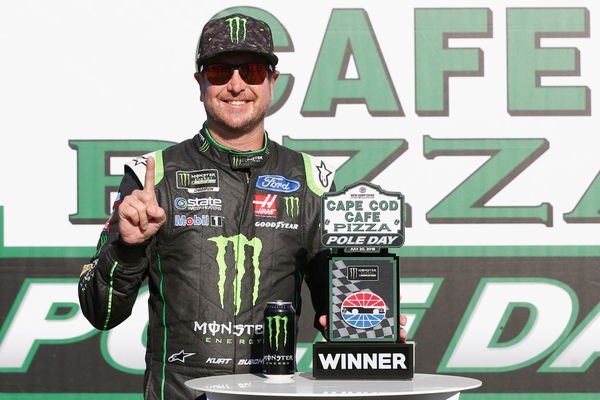
USA Today via Reuters
Sep 15, 2023; Bristol, Tennessee, USA; NASCAR fans watch from the pits during practice for the Bass Pro Shops Night Race at Bristol Motor Speedway. Mandatory Credit: Randy Sartin-USA TODAY Sports

USA Today via Reuters
Sep 15, 2023; Bristol, Tennessee, USA; NASCAR fans watch from the pits during practice for the Bass Pro Shops Night Race at Bristol Motor Speedway. Mandatory Credit: Randy Sartin-USA TODAY Sports
How does one decide who is the best in a sport? Is it the number of wins or the number of titles one has under this belt? While the average fan/enthusiast of a sport can give the answer without any 2nd thoughts based on their emotional connection with an individual or team, it’s the organization’s obligation to set a clear-cut methodology that would separate the best from the rest.
Watch What’s Trending Now!
The process of determining the champion varies from sport to sport. We have the age-old yet effective points system that would determine the champion through a simple process – the one with the most points becomes the champion. However, this system has a major flaw, while this is a legitimate way of filtering the best out of the bunch, entertainment and the wow factor take a hit here with the larger and resourceful players/teams continuing their domination throughout.
The other is the modern and popular process – the playoff system, the one we have in NASCAR & NBA. Unlike the points system, playoff rounds in a championship chase offer unparalleled fan engagement with plenty of drama on offer. Unfortunately, this too involves a distressing side effect – one that doesn’t sit well with traditionalists and hard-core fans.
ADVERTISEMENT
So let us inspect NASCAR’s playoff system and understand why it is probably the worst way to pick a winner.
The evolution of the playoff system in NASCAR
Throughout its 75 glorious years, the National Association for Stock Car Auto Racing, or NASCAR in short has used 15 different points systems to pick its champion. That includes some of the sport’s greatest like Richard “The King” Petty and his 7 titles, Tony Stewart’s 2011 controversial championship against Carl Edwards.
ADVERTISEMENT

Getty
DAYTONA BEACH, FL – 1979: Richard Petty rallied late in the season to gain the advantage and win an unprecedented seventh national title in NASCAR’s Cup Series. (Photo by ISC Archives/CQ-Roll Call Group via Getty Images)
Though the sanctioning body has made amends perfecting the process, a sense of vagueness and confusion always lingered in fans’ minds. The difference is clear as day, while ‘The King” won his 1967 championship with 6028 points to his name, fast forward to 2004, Kurt Busch claimed his title with just 8 points lead ahead of Jimmie Johnson. Yes, 8!
ADVERTISEMENT
However one can’t outright criticize the organization for it. Towards the beginning of the 90s and 2000s, NASCAR’s ratings were going down, the sport was quickly losing the ground it made in the 70s and 80s to the rising competition of other major leagues like MLB, NFL, and NBA. To counter this, NASCAR had to adopt a more appealing format to retain its audience from going over.
WATCH THIS STORY: Denny Hamlin criticises Texas Motor Speedway overhaul
The first significant change came in 1974 when Bill France Jr thought of implementing a new simpler system. Joe Whitlock, Bob Latford, and Phil Holmer together came up with a methodology that awarded points in a descending order that later became the “Boot Hill System.” The system remained with few tweaks and turns from the organization up until 2003 when the Chase system was introduced.
ADVERTISEMENT
Top Stories
NTSB Appeals for Greg Biffle’s Wife’s Alleged In-Flight Text Messages as Crash Investigation Heats Up

Donald Trump Issues Moving Message of Condolence for NASCAR’s Greg Biffle & Family During North Carolina Address

Another Almost Fatal Disaster Surfaces From Statesville Airport Amidst Ongoing Greg Biffle’s Crash Investigation

Air Safety Investigator Probes Possible Co-Pilot Role Amid Greg Biffle’s Fatal Plane Crash Investigation

Greg Biffle’s Haunting Aviation Admission Resurfaces Hours After Tragic NC Plane Crash

The exciting & exploited Chase format
NASCAR’s Chase format was the organization’s answer to dwindling TV ratings. 2003 saw Matt Kenseth claim the title with just 1 early season victory, pointing his way into the championship contention to trounce JJ who had 3 wins by 90 points to claim the final Winston Cup Series championship. This was certainly unfair, considering how a driver with just 1 win under his belt could take home the title. Thus came the Chase format the very next year until that too was exploited.

Getty
LOUDON, NH – JULY 20: Kurt Busch, driver of the #41 Monster Energy/Haas Automation Ford, poses with the Cape Cod Cafe Pizza Pole Award after posting the fastest lap during qualifying for the Monster Energy NASCAR Cup Series Foxwoods Resort Casino 301 at New Hampshire Motor Speedway in Loudon, New Hampshire. (Photo by Brian Lawdermilk/Getty Images)
The Chase format is arguably the closest system NASCAR had to the current playoff process. Here only the top 10 drivers in points were eligible for the championship. To lay down things into a simple perspective, the basic idea of this system was to make the closing races more engaging and entertaining, essentially to pump up the descending viewership and ratings.
ADVERTISEMENT
The new format was ingenious considering it gave NASCAR one of the closest points battles in history when Kurt Busch beat Johnson for the title, edging him out 8 points. At first, fans were all in on the idea of having a more competitive and dramatic championship chase, like the name suggests, however after a while, this system was also getting slowly exploited.
ADVERTISEMENT
The iconic duo of Jimmie Johnson and Chad Knaus finds the loophole and starts hammering
Care to guess, what the weakness of the new format was? Well, let’s dive deeper. In an effort to garner more fans and viewership, the organization did its regular season dirty. Now the emphasis shifted toward the playoff rounds, taking away the significance of regular season races.
Teams and drivers picked up the loophole and started using it to its fullest. HMS duo and NASCAR’s latest Hall of Famers, Jimmie Johnson and Chad Knaus were the first to identify the vulnerability. Since the initial races now lacked importance, being a points game till the playoff rounds. The #48 HMS team used the first 26 races, tweaking their equipment, and fine-tuning it to absolute perfection to seize the checkered flag in the championship rounds.

Getty
Jimmie Johnson, Team Owner Rick Hendrick and Crew Chief Chad Knauss pose with the trophy after winning the Coca-Cola 600 at Lowe’s Motor Speedway. (Photo by Brian A. Westerholt/Getty Images)
By adopting such a brilliant strategy, to effectively utilize the system’s loopholes, Johnson earned 5 titles from 2006 to 2010 5 seasons in a row. By the time the action reached the 2011 season, the ratings came down again. It was the year, the great Tony Stewart picked up his final title as a driver. Despite the awful regular season performance, barely making up the points, Stewart set the championship rounds on fire, acing 5 out of the last 10 races to tie up in points with the more consistent Carl Edwards. The tie-breaker rule awarded the title to Stewart who had more wins than Edwards.
ADVERTISEMENT
The present format and its drawbacks, why is it the worst in determining the champion?
As mentioned above, the present system is more or less a souped-up version of the Chase format. While the earlier format had the top 10 drivers reaching the playoffs, NASCAR introduced an eliminator format. Before that, the number of drivers reaching the playoff rounds was increased to 12 before it was again reshuffled to 16(the present-day system) in 2014.
ADVERTISEMENT
The consequent, rounds of 3 will filter out 4 drivers from each round till we reach the 4 drivers for the championship. Now, while may seem simple, there’s more to it. Along with the new system, NASCAR also gave the winning driver a direct pass to the advancing round. Just win and you’re in. Now the whole process just got more complex.
NASCAR incorporated 2 of its former formats into 1, turning everything more complicated in the process. Imagine a driver winning a race, now he gets a free pass into the playoff 16 where he will need to win to advance. Though the sanctioning body has made it a do-or-die situation where a win is more significant than ever, the new format also takes away the importance of initial races just like its predecessor.
Driver can now win a race in the early 26, slack off get some playoff points, and still make playoff rounds. Sounds confusing? No wonder why. In the very first season since its inception in 2014, Ryan Newman who had no wins that season was running 2nd to Kevin Harvick. If he were to pass Harvick, he would have become Cup Series’ first-ever winless champion. Harvick recently blasted the organization, mentioning how drama and entertainment have taken over the precedence.

Imago
NASCAR, Motorsport, USA Pure Michigan 400-Practice Aug 16, 2013 Brooklyn, MI, USA NASCAR Sprint Cup Series driver Kevin Harvick during practice for the Pure Michigan 400 at Michigan International Speedway. Brooklyn MI USA, EDITORIAL USE ONLY PUBLICATIONxINxGERxSUIxAUTxONLY Copyright: xAndrewxWeberx 7384880
For one to find more anomalies, you don’t have to look further. Take a look at the current season and its happening. After the eliminator in Bristol, 2 champions were eliminated whereas 23XI Racing‘s Bubba Wallace who sneaked in the playoffs solely on points advances into the round of 12. The plot thickens even further when one realizes Michael McDowell who put on a spectacular performance at Indianapolis was also eliminated in the first eliminator.
What do you think of the current system? Tell us your thoughts in the comments down below. To round off the pointers, NASCAR’s yearning for entertainment has got them further away from the spirit of the sport. Though race cars have become safer, races have become more chaotic with NASCAR catering to its new fans that need more dramatic wrecks. This has further alienated the hardcore fans that once made the sport it is today.
READ MORE: Joe Gibbs’ Anxious Superstar Drops Shocking 3-Word Confession Ahead of Talladega Clash
ADVERTISEMENT
ADVERTISEMENT
ADVERTISEMENT

